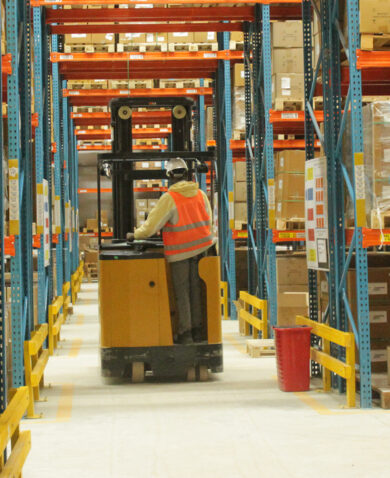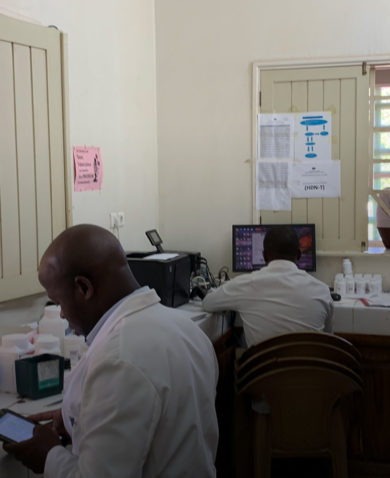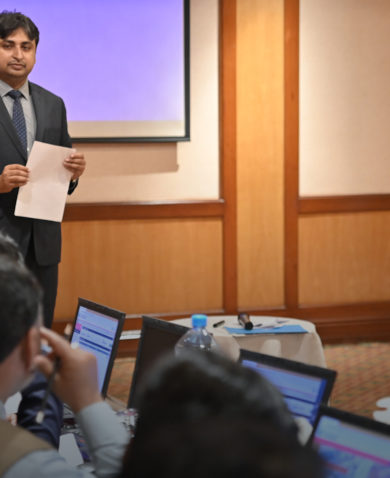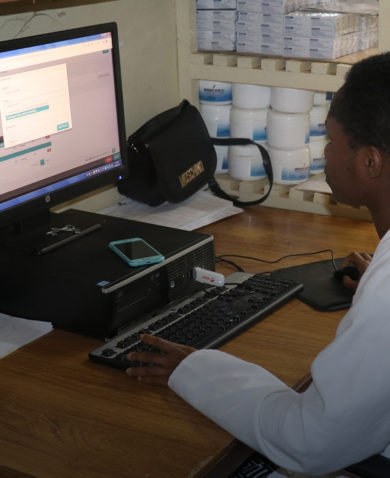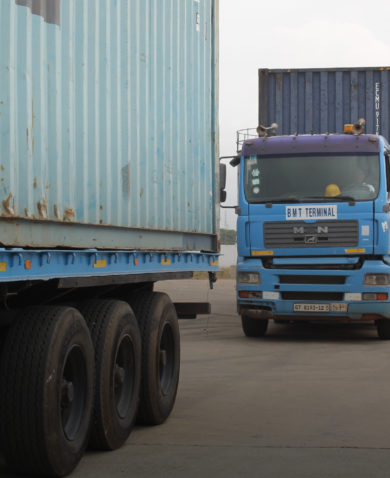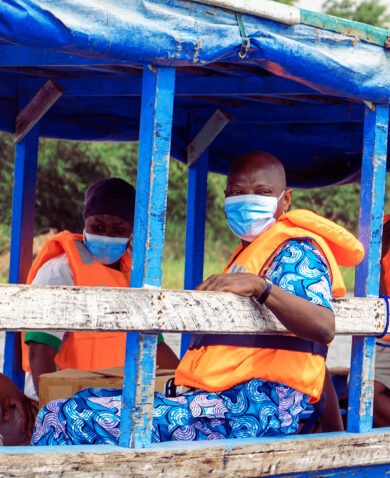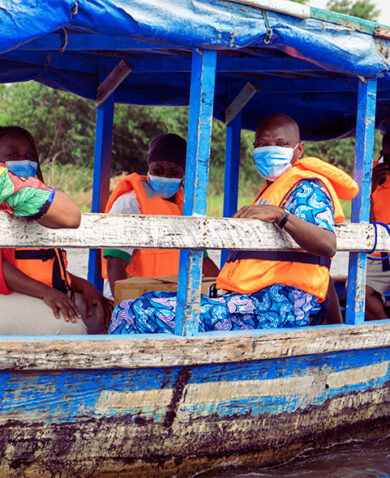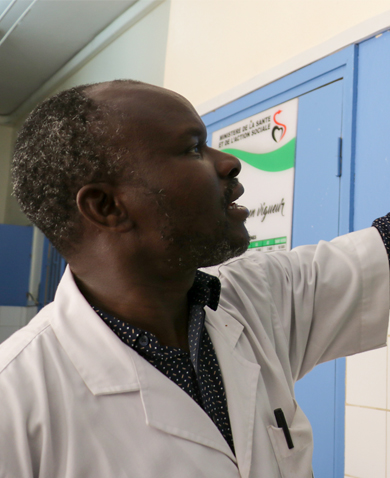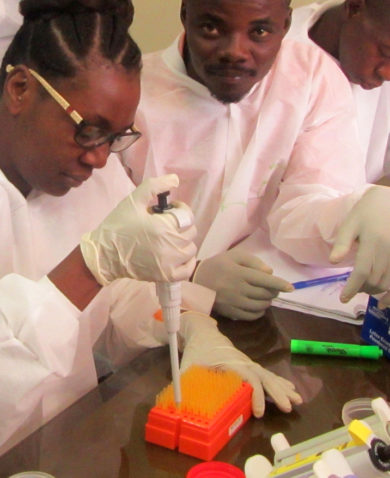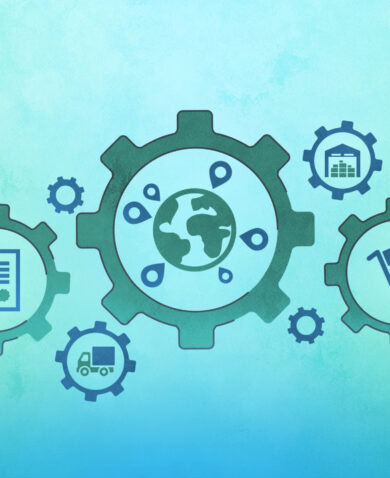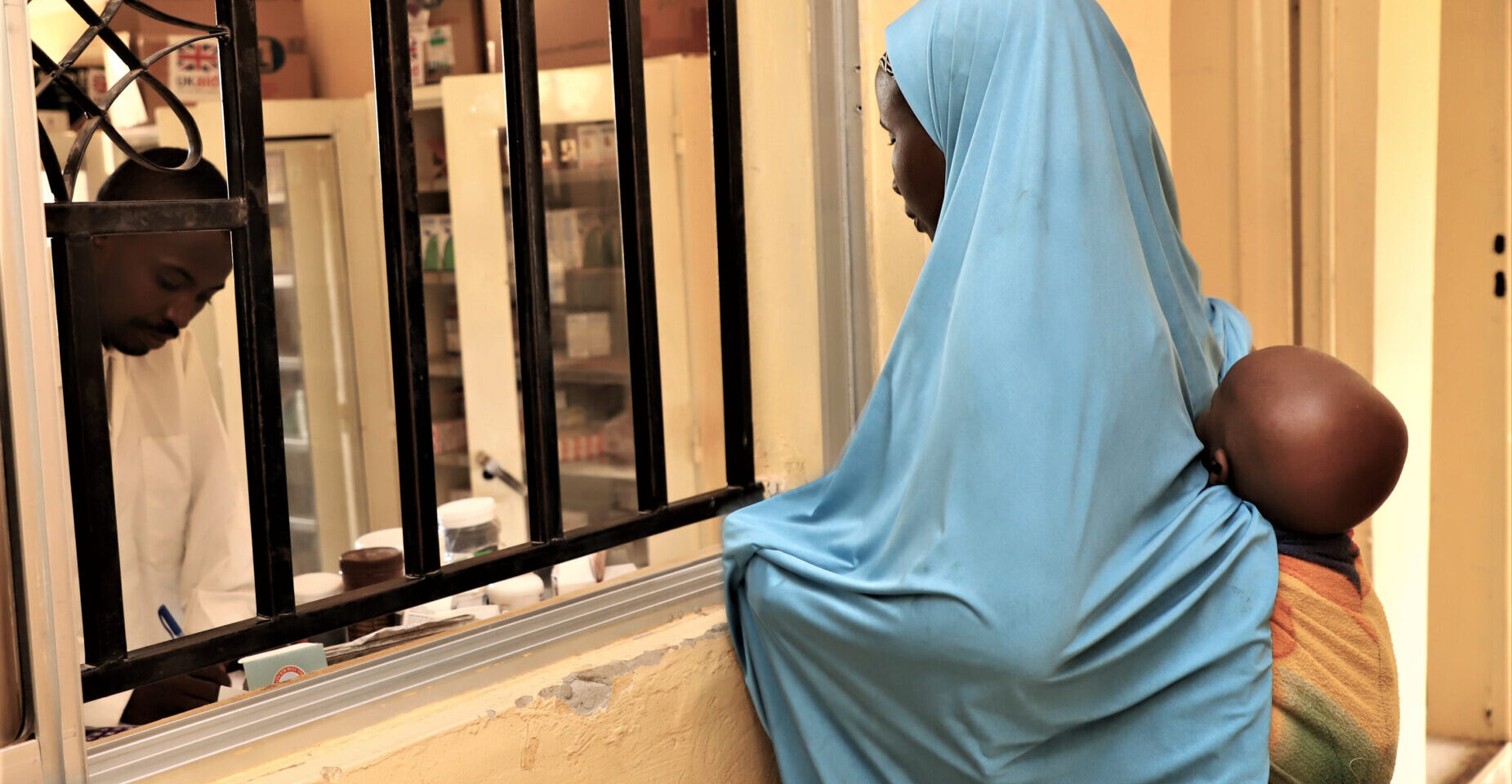
3 Questions with Anne Ogoza Ugye on Implementing Malaria Work in Nigeria
June 22, 2023 | 2 Minute ReadThe Chemonics-led GHSC-PSM Nigeria Malaria Program Director discusses her experience and efforts to attain zero malaria.
1. Tell us about yourself! What made you want to work in the health supply chain sector on malaria?

I come from a highly marginalized community in Benue State, Nigeria, and I have always had a passion for children and the less privileged, seeking ways to improve livelihoods since childhood. Consequently, in 1987, I started working structurally through a community-based organization. During my time in the field, I observed numerous cases of deaths, particularly among children and mothers, resulting from malaria. Recognizing the urgency of the situation, I seized the opportunity to join the USAID DELIVER PROJECT, a malaria program in Nigeria, in 2009 and have since dedicated myself to malaria work.
Malaria is one of the oldest and deadliest diseases, devastating families, communities, and countries. However, despite its destructive nature, I firmly believe that we possess the capacity and tools necessary to eradicate malaria within our generation. With this conviction, I have persistently invested all my time, energy, and resources into the mission of making malaria a thing of the past. By combining my passion for serving the less privileged with my commitment to eliminating malaria, I strive to create a brighter and healthier future for all.
2. What is the biggest accomplishment you have achieved related to malaria in Nigeria? Can you provide an example?
I spearheaded the development and execution of a cutting-edge information and communication technology for development (ICT4D) platform in Nigeria in 2022 to facilitate the implementation of digital insecticide-treated bed net (ITN) distribution campaigns. This home-grown platform, a cloud-based real-time solution, was designed to overcome the drawbacks of paper-based ITN distribution campaigns and existing digital tools. The platform introduced automation for electronic tokens and the redemption process of net cards, providing a range of advantages. Notably, it effectively tackles bottlenecks in campaign logistics and documentation, resulting in cost savings related to technology expenses. Furthermore, it enhances data availability and information visibility, bolstering campaign integrity. Through my leadership, the successful pilot of this platform demonstrated its potential to revolutionize ITN campaigns in Nigeria, ushering in an era of streamlined processes, reduced costs, and improved efficiency.
3. What is the biggest lesson you have learned while implementing malaria work in Nigeria, and what do you wish others knew about it?
Although often considered a single disease, malaria is more accurately viewed as a complex constellation of diseases, each influenced by intricate interactions among biological, ecological, social, and economic factors.
In Nigeria, malaria is a preventable, treatable, and curable disease. However, implementing antimalarial interventions lacks consideration for the underlying variations in disease epidemiology in rural areas, exacerbated by factors such as migration, civil unrest, haphazard exploitation of natural resources, and the accompanying poverty.
Furthermore, a crucial contributing factor to the inadequate management and treatment of malaria is the need for more skilled and dedicated healthcare professionals. It is imperative to not only provide training, improve retention rates, and enhance remuneration for these individuals, but also to foster a behavioral shift toward embracing advancements and innovations in malaria care.
Banner photo: A nursing mother receives free anti-malaria drugs at Kudai Primary Health Center, Jigawa, Nigeria. Photo: GHSC-PSM
Posts on the blog represent the views of the authors and do not necessarily represent the views of Chemonics.


